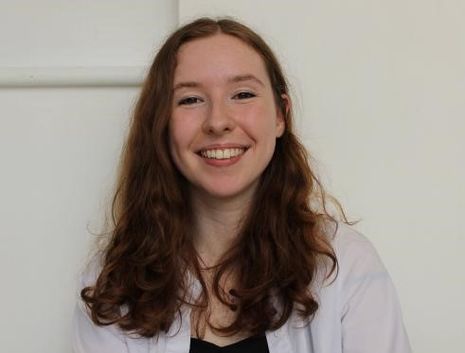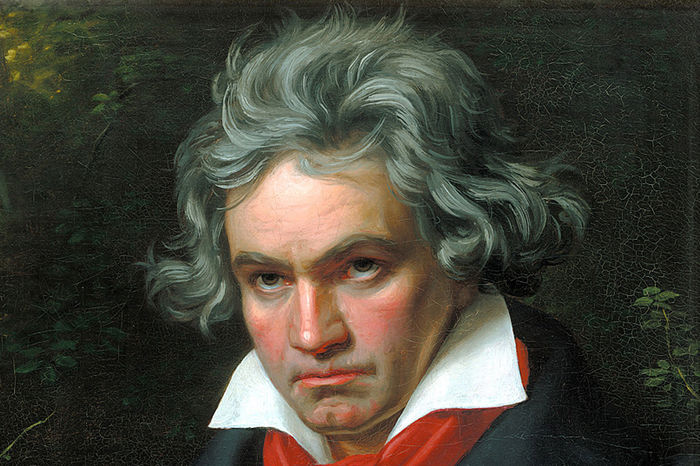The invisibility of Long Covid has an even longer history
“We need to take a look back in history to tackle prejudice towards Long Covid today”, argues Long Covid patient Rebecca Siddall

An estimated 65 million people worldwide and 2 million in the UK have Long Covid. I am one of them.
Having first caught COVID-19 in the earliest days of the pandemic, I spent March 2020 fighting for breath. My personal experience over the last few years has led me to investigate the history of post-viral conditions, in order to understand the bias that I – and so many other Long Covid patients – have endured to access adequate treatment. Despite clear evidence of such illnesses throughout history, a lack of understanding and research has led to patients experiencing a ‘delayed or a complete lack of clinical care’ today. I never expected to uncover such a clear (and yet widely unknown) narrative that radically alters how we should view post-viral conditions. I believe this presents a critical opportunity in the present to change the perception of Long Covid as it unfolds.
“When I was acutely ill in March 2020, I was rushed to A&E, gasping for breath ... I was told I was having a panic attack”
Despite being incredibly lucky to avoid hospitalisation, as the months passed my anticipated recovery never came either. I found I existed in a new state, somewhere between healthy and critically ill. But most frighteningly of all – somewhere forgettable. Despite the sheer number of people with Long Covid, this is a condition that renders both itself and its sufferer invisible. We hide in plain sight, bedridden by bouts of breathlessness and fatigue, silenced by waves of dizziness and nausea – just as the illness itself evades many (but not all) traditional modes of medical investigation. It was this feeling of invisibility that pushed me to explore further.
It turns out that for centuries, patients have survived epidemics only to have their lives changed by the seemingly endless nature of their symptoms. In the late 1800s, doctors noted ‘altered cognition’ (what we might now call ‘brain fog’, a common symptom of Long Covid) in survivors of the 1889 and 1892 Russian flu pandemics. Similarly, smallpox and polio are now known to cause long-lasting conditions in the months, years, and decades following initial infection. Recently, the scale of post-polio syndrome has become clear – thirty years after infection, up to 85% of survivors, including those who had a relatively mild original case, may develop muscle weakness and pain. Long Covid is far from the first post-viral condition to emerge en masse in the wake of a pandemic.
“Long Covid patients have had to combat a wave of misinformation and prejudice in order to access medical care”
The marks of epidemic-triggered post-viral conditions can be seen throughout history; but these patients are often forgotten as soon as the acute phase is over. Even the 1918 ‘Spanish Flu’ pandemic, to which COVID-19 is most often compared in the media, provoked post-viral conditions in survivors. Historian Laura Spinney describes the scale of the issue as significantly impacting economies, just as Long Covid has begun to do today: in Tanzania, ‘Long Flu’ triggered “the worst famine in a century” as fatigue prevented workers from planting the fields. The ‘Spanish Flu’ infected one in three people on Earth, and left up to 100 million dead – and yet was largely written out of collective memory, along with those who suffered from ‘Long Flu’.
But there is no need for Long Covid to go the way of ‘Long Flu’: instead, it could present a turning point, as patients are fighting to define the condition on their own terms. Even the name ‘Long Covid’ originated from the patient community on Twitter, opposing the medical terminology of ‘Post-Covid Syndrome’. Access to social media has broken down some of the isolated nature of our condition. People with Long Covid might not be healthy enough to go out onto the streets and campaign for treatment, but – unlike in the past – we can engage in new forms of activism. Scholars such as Felicity Callard have argued that Long Covid may well be the first illness to be identified and articulated by a patient community on social media. Contemporary medicine, technology and globalisation allow us to construct online networks which have successfully drawn attention to this illness, named its symptoms and called on medical professionals to investigate further. We have been able to raise public awareness of the risks of Long Covid and create solidarity across people with many different post-viral conditions.
But defining the disease is only half the struggle. When I was acutely ill in March 2020, I was rushed to A&E, gasping for breath and on the brink of collapsing – only to be told that, as a young woman, I was not in respiratory distress; instead, my symptoms must be a panic attack. In fact, my lungs were severely inflamed by COVID-19 infection. It’s only now, three years later, that I’ve managed to access specialist Long Covid NHS treatment to redress the lingering damage done to my respiratory system. In the intervening time, I’ve had to take on the physical and mental burden of tracking and treating my own symptoms. It’s a relief to finally be believed.
Long Covid patients have had to combat a wave of misinformation and prejudice in order to access medical care. This is far from unique: Chronic Fatigue Syndrome (also known as ME, another prevalent post-viral condition) was widely dismissed as hypochondria or a psychological problem until the late 1990s. I hope that there is a chance now for history to stop repeating itself: by sharing our symptoms, knowledge and stories, Long Covid patients can challenge the common tendency to dismiss our experiences.
As this pandemic recedes into the past, we only ask one thing: don’t forget us.
 News / Colleges charge different rents for the same Castle Street accommodation2 March 2026
News / Colleges charge different rents for the same Castle Street accommodation2 March 2026 News / News in Brief: waterworks, wine woes, and workplace wins 1 March 2026
News / News in Brief: waterworks, wine woes, and workplace wins 1 March 2026 News / Climate activists protest for ‘ethical careers policy’1 March 2026
News / Climate activists protest for ‘ethical careers policy’1 March 2026 News / Angela Merkel among Cambridge honorary degree nominees27 February 2026
News / Angela Merkel among Cambridge honorary degree nominees27 February 2026 News / Private school teacher who lied about Cambridge degree barred from teaching27 February 2026
News / Private school teacher who lied about Cambridge degree barred from teaching27 February 2026









